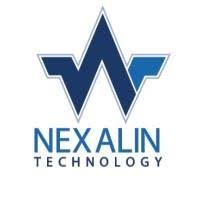
Nexalin Technology, the leader in Deep Intracranial Frequency Stimulation (DIFS) of the brain, today announced that the United States Patent and Trademark Office (USPTO) has issued U.S. Design Patent No. D1,092,758, entitled Transcranial Electro-Stimulation Device, providing 15 years of design protection for the Company’s next-generation HALO Clarity neuromodulation device.
HALO Clarity is designed to deliver non-invasive neuromodulation by stimulating deep brain structures associated with mental health and neurological conditions, such as Alzheimer’s, without reliance on pharmaceuticals or surgery. The newly issued patent strengthens Nexalin’s expanding intellectual property estate, supporting the Company’s DIFS platform and ongoing clinical and regulatory initiatives.
“This patent represents another important milestone in our mission to transform mental health and neurological care,” said Mark White, Chief Executive Officer of Nexalin. “HALO Clarity is engineered for comfort, usability, and performance to deliver our proprietary DIFS™ technology — a non-invasive, drug-free approach we believe can meaningfully impact conditions such as depression, anxiety, insomnia, trauma-related disorders, and neurodegenerative diseases, including Alzheimer’s and dementia. Importantly, the system is designed for supervised use from the patient’s home, giving physicians the ability to monitor and guide treatment remotely while offering patients a safe and convenient alternative to in-clinic visits. We believe this unique capability has the potential to expand access, improve compliance, and lower the cost of care for patients worldwide.”
The at-home, professionally supervised treatment model enabled by HALO Clarity provides several advantages:
Enhanced convenience and accessibility. Patients may receive therapy in the comfort of their own home, reducing the need for frequent office visits or travel.
Remote clinician oversight and monitoring. Physicians can review treatment data in real time and adjust protocols as needed through secure telemedicine integration.
Improved compliance and continuity. The reduction of logistical burdens helps patients adhere to prescribed treatment regimens more consistently.
Potential for lower overall cost of care. With fewer in-clinic resources required, HALO™ Clarity may reduce the total cost of care while alleviating burdens on healthcare infrastructure.
Scalable clinical trial design and data capture. The ability to collect data remotely can streamline clinical trials, shortening timelines and reducing costs.
The Company is advancing multiple clinical studies of HALO Clarity across indications, including anxiety, insomnia, post-traumatic stress disorder, and mild traumatic brain injury. Feedback from the U.S. Food and Drug Administration has already established consensus on the design of pivotal trials for anxiety and insomnia, paving the way for future regulatory submissions. Independent trials at leading academic institutions such as the University of California, San Diego, are also underway, evaluating the device in PTSD and related conditions. Nexalin’s DIFS platform has been studied in more than two dozen completed or ongoing trials worldwide, demonstrating consistent signals of safety and efficacy.